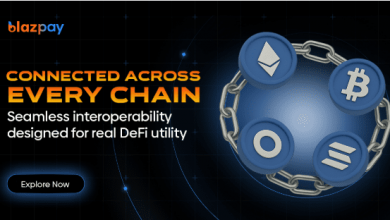From Founder to Systems Builder: How Sabeer Nelli Scales Without Losing Focus

Introduction: More Than a Founder—A Systems Thinker
In the world of high-growth startups, founders are often romanticized as visionaries, product obsessives, or relentless hustlers. But Sabeer Nelli, CEO of Zil Money and founder of Tyler Petroleum, represents a different breed: the systems builder. While others obsess over pitch decks or design aesthetics, Sabeer obsesses over repeatable, reliable, scalable systems.
It’s how he took Tyler Petroleum from a single gas station to a multi-location enterprise, and how he transformed Zil Money into a fintech platform that processes over $91 billion in transactions. His success isn’t magic—it’s method.
This article dives into how Sabeer’s obsession with systems thinking enables him to scale businesses without losing focus, chaos, or control.
Why Systems Beat Hustle
Many startups rely on heroics—long nights, frantic pivots, and breakneck launches. But Sabeer learned early in his entrepreneurial career that hustle without structure leads to burnout. Systems, on the other hand, create sustainability.
At Tyler Petroleum, he built SOPs (Standard Operating Procedures) for everything—cash handling, fuel delivery scheduling, vendor payments, and shift management. These systems allowed stores to operate independently while delivering consistent performance.
The same principles now guide Zil Money’s growth. Every department—from engineering to customer support—follows documented processes, feedback loops, and clear KPIs. That clarity allows Sabeer to focus on strategic direction while ensuring nothing falls through the cracks.
Scaling Through Predictability
For most founders, growth introduces complexity. More users. More features. More teams. More risks. But Sabeer sees growth as a function of predictability: the more predictable your internal systems are, the more you can scale without breaking things.
For example, at Zil Money, launching a new feature doesn’t start with coding—it starts with user story documentation, risk assessment, testing protocols, and internal rollout plans. This structured approach ensures that a feature doesn’t just launch—it sustains.
Predictability also governs customer support. Rather than reactive responses, Zil Money uses trend analysis to anticipate issues, automate FAQs, and flag potential problem areas before they escalate. These small systems add up to a big advantage.
Cross-Training for Cross-Functionality
One of Sabeer’s most overlooked strategies is cross-functional training. At Tyler Petroleum, employees were encouraged to learn multiple roles—cashiers learned stock rotation, managers learned vendor communication. This flexibility made staffing easier and improved problem-solving on the ground.
At Zil Money, the same logic applies. Engineers understand basic compliance. Customer support understands product roadmaps. Product teams understand infrastructure limitations. This shared understanding reduces silo friction and speeds up execution.
Instead of hiring more people to solve problems, Sabeer makes sure the existing team is versatile enough to handle them.
Feedback as a System, Not a Suggestion
In many companies, feedback is informal—sentences tossed in Slack channels or post-meeting comments. But for Sabeer, feedback is a system. At both Tyler Petroleum and Zil Money, customer feedback isn’t just gathered—it’s structured, tagged, prioritized, and turned into roadmap decisions.
For instance, when Zil Money launched its international payments feature, the idea didn’t come from a boardroom brainstorm. It came from recurring support tickets and usage data showing that businesses were managing global operations elsewhere.
That feedback became a product plan. And that product plan now powers a key competitive advantage.
Automation That Amplifies, Not Replaces
Sabeer doesn’t chase automation for automation’s sake. He looks for where automation enhances human decision-making—not where it replaces it blindly.
In Zil Money, automation handles routine but sensitive tasks like:
- Auto-scheduling recurring payments
- Reconciling bank feeds with transactions
- Sending check drafts or digital checks instantly
- Auto-flagging duplicate vendor invoices
But even with this automation, final approvals often rest with humans. The system supports decision-making—it doesn’t override it.
This balance keeps the platform both efficient and trustworthy.
Hiring with Systems in Mind
Sabeer doesn’t just hire smart people—he hires people who thrive in systems. Whether it’s a product manager, compliance analyst, or backend engineer, the criteria remain the same: Do they respect process? Can they follow protocols? Can they improve what already exists?
This culture eliminates ego-driven chaos. Everyone knows how decisions are made. Everyone knows what success looks like. And that alignment means new hires integrate faster and perform better.
It’s no surprise that Zil Money has built lean teams that outperform larger, messier ones.
Discipline Over Disruption
In a fintech landscape obsessed with disruption, Sabeer’s approach is refreshingly disciplined. He’s not interested in being the loudest player in the room. He’s interested in being the most dependable.
Instead of chasing media buzz or venture hype, Zil Money quietly expanded across ACH, check, wire, credit card, and now international payments—all under one interface. That breadth didn’t happen overnight. It happened through deliberate, structured planning.
And while some startups pivot every six months, Zil Money has followed a focused, user-driven path. Discipline builds trust. And trust builds business.
How Founders Can Apply Sabeer’s Systemic Approach
Sabeer’s playbook is replicable for any founder willing to shift focus from sprinting to systematizing:
- Document Everything – If a process happens more than once, it needs a checklist or SOP.
- Build for Repeatability – Design workflows that work for one user or 100,000.
- Remove Single Points of Failure – Ensure no team or feature relies on one person or fragile logic.
- Make Feedback Scalable – Build systems to ingest, score, and act on customer insights.
- Keep the Core Simple – Don’t complicate the foundation. Complexity should live at the edges.
- Prioritize Stability Over Speed – Launch slowly if it means launching right.
- Hire Systems Thinkers – Find people who love improving how things work—not just making them work.
Conclusion: Systems Don’t Stifle Innovation—They Power It
In both gas stations and fintech, Sabeer Nelli’s greatest strength hasn’t been marketing, coding, or raising capital. It’s been building systems. Systems that reduce chaos. Systems that scale with grace. Systems that turn complex businesses into calm machines.
In a startup world that celebrates the solo genius or the charismatic founder, Sabeer reminds us that long-term success belongs to those who trade frenzy for frameworks.
Because at the end of the day, great products fade. Great processes endure.
Read More From Techbullion

Source: From Founder to Systems Builder: How Sabeer Nelli Scales Without Losing Focus




